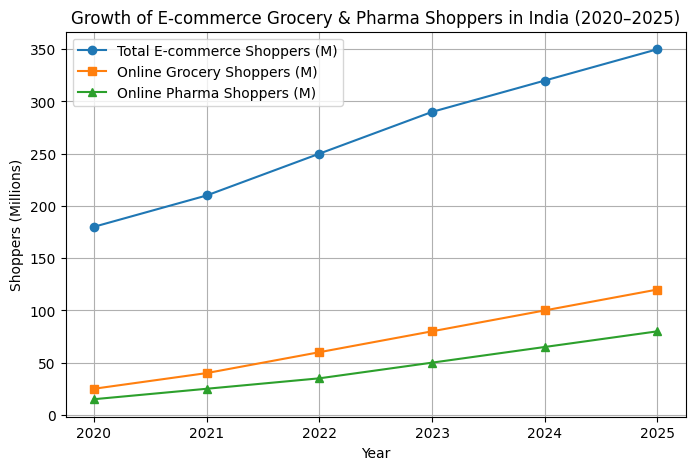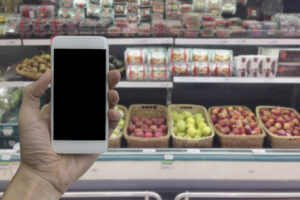Unique Product Showcase


Unique Product Showcase
Imagine ordering seafood from Kochi while sitting in Delhi and receiving it fresh the same evening, or having a vaccine delivered to your doorstep in 45°C summer heat without a single degree of compromise. This isn’t just e-commerce magic—it’s cold chain logistics at work.
As India embraces online grocery and digital pharma deliveries like never before, cold chain logistics in India is stepping into the spotlight. Freshness, safety, and compliance now depend on one thing: how strong and smart our cold chain is.

India’s e-commerce evolution since 2020 has been nothing short of phenomenal. By 2025, the country is expected to have over 350 million online shoppers, nearly double the count in 2020. While fashion and electronics played an early role, today the fastest-growing categories are fresh groceries and digital pharmacies.
Quick commerce platforms like Blinkit, Zepto, and BigBasket Now have revolutionized shopping habits by promising deliveries under 30 minutes. Fresh fruits, vegetables, dairy, frozen items, and meat are now reaching homes faster than shoppers could have ever imagined.
On the pharma side, platforms such as PharmEasy, Tata 1mg, and Apollo have transformed how India accesses medicines. Telemedicine consults, doorstep diagnostics, and the delivery of temperature-sensitive medicines like insulin or biologics are fueling the demand for robust pharma cold chain solutions. For these businesses, cold chain is not an add-on but the very foundation of consumer trust.

E-commerce in groceries and pharma runs on trust and consistency, but both depend on one non‑negotiable requirement: temperature-controlled logistics. Perishable goods—whether fruits, vegetables, frozen foods, or medicines like insulin and vaccines—must maintain a strict cold chain at every stage. Even a small disruption in temperature can reduce shelf life, spoil quality, or compromise patient safety. In India, where consumer expectations for speed and freshness are soaring, ensuring a seamless cold chain has become the backbone of online grocery and pharma deliveries.
The challenges, however, are far from simple. India’s climatic diversity, from sweltering summers to humid monsoons, strains cold chain systems. Last-mile delivery is complicated by heavy traffic, small order sizes, and the promise of quick commerce speeds. On top of this, operators must fight rising diesel and electricity costs, which make 24/7 refrigeration expensive. This has created a strong push for sustainable, tech-driven solutions that balance reliability with efficiency.
Key challenges in India’s cold chain for e-commerce include:
At the heart of every cold chain lies the warehouse, now evolving rapidly to meet e-commerce demands. Businesses are shifting from large regional facilities to hyper-local cold storage hubs, bringing freshness closer to consumers. This innovation includes neighborhood-level micro cold storage, IoT-driven warehouse management systems for real-time monitoring, and shared infrastructure that boosts efficiency and cuts costs for multiple online grocery and pharma players. Essentially, these warehouses are transforming into AI-equipped nerve centers for maintaining product integrity and freshness.
The last mile is where the consumer experience lives—or dies. A poor delivery erases brand trust, but a crisp bag of spinach or a perfectly frozen ice cream creates delight. Refrigerated vans and trucks in India are stepping up to this mission.
The future of last-mile cold transport lies in:
As commerce penetrates smaller cities quickly, demand for these vans is only accelerating. For logistics players, manufacturers, and technology providers, this is a booming sub-sector.

Nowhere are standards stricter than in pharmaceuticals. A life-saving drug must arrive exactly as prescribed—without compromise. Most vaccines and biologics must remain at 2–8°C, with some requiring even colder conditions.
This has opened doors for innovations like:
The pharma cold chain in India is not just growing—it is mission-critical.
The marriage between e-commerce and cold chain in India is only deepening. From cold storage warehouses powering micro-distribution to refrigerated vans handling last-mile deliveries, to insulated pharma solutions assuring patient safety—the future of retail depends squarely on robust cold chain infrastructure.
For innovators, investors, and solution providers, this is the moment to step into the spotlight. Join us at REFCOLD 2025, India’s leading Cold Chain & Refrigeration Exhibition. Discover ideas. Showcase innovation.
Quick Links
Registration
© Copyright ISHRAE Refcold India. All Rights Reserved